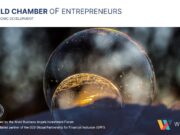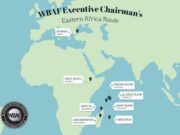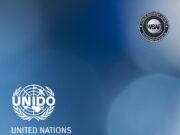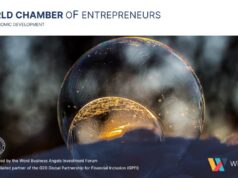World Class Startup Magazine is pleased to feature Feryal Abdulla Nass, a prominent female leader hailing from the Gulf region. She serves as the High Commissioner for Bahrain within the World Business Angels Investment Forum (WBAF) and holds the esteemed role of Country Office Director for WBAF in Bahrain. Additionally, she holds the position of Vice Chair at the ASEAN Bahrain Council and proudly stands as the Founder and Chair of the Bahrain Entrepreneurship Organization. In our forthcoming interview, we will delve into discussions encompassing startups, entrepreneurs, access to financial resources, and the invaluable role of women in leadership.
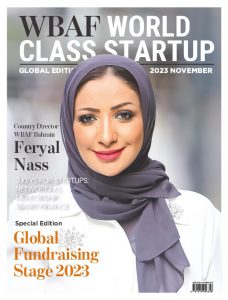 Angel Investor Review: How does the Bahrain Entrepreneurship Organization support women entrepreneurs and startups?
Angel Investor Review: How does the Bahrain Entrepreneurship Organization support women entrepreneurs and startups?
Nass: The Bahrain Entrepreneurship Organization is a vibrant community of youth and women entrepreneurs dedicated to fostering connections and providing valuable support to ambitious professionals who are building their businesses, both locally and internationally. Members of this organization collaborate to exchange insights, best practices, valuable contacts, and leverage strategic partnerships.
The Bahrain Entrepreneurship Organization operates under three core pillars: Innovation, Development, and Training for startups. It also emphasizes the importance of Accelerating and Expanding Globally. Through these pillars, they facilitate networking opportunities for their members.
Angel Investor Review: The Bahrain Entrepreneurship Organization has made significant contributions to the Bahrain’s startup and angel Investment ecosystem, including the establishment of the World Business Angel Investment Forum Bahrain Country Office. What achievements have been realized by this initiative, and how has it collaborated with the Bahrain Entrepreneurship Organization to empower startups and Bahraini entrepreneurs on their path to success?
Nass: The World Business Angel Investment Forum – Bahrain Country Office, in collaboration with the Bahrain Entrepreneurship Organization, the Economic Development Board (EDB), Bahrain Development Bank (BDB), Tamkeen, and the Ministry of Industry, Commerce, and Tourism (MOIC), has organized a variety of training programs in Bahrain. These include the Investment Readiness Course, the Certified Qualified Angel Investors Program, the QBAC+ Program, and an Advanced Learning Program specifically tailored for Bahraini startups and potential Angel Investors.
These initiatives have seen more than 175 Bahrainis graduate from the World Business Angel Investment Forum Business School, resulting in a notable improvement in the quality of business pitches and the innovative projects presented within the early-stage investment ecosystem.
We are currently in the process of founding the Bahrain Business Angel Network (BBAN), which will include qualified angel investors who have successfully completed the WBAF’s accredited angel investor proficiency test. The primary objective of BBAN is to facilitate entrepreneurs’ access to funding and to attract international investors to Bahrain’s emerging equity market for early-stage businesses. The official accreditation of BBAN by the World Business Angels Investment Forum will open the door to the creation of co-investment frameworks.
Angel Investor Review: Securing early-stage funding remains a significant challenge for startups worldwide, despite the active involvement of NGOs and policymakers. Can you shed light on this issue?
Nass: Raising funds in the early stages of a startup’s journey is indeed a daunting challenge faced by entrepreneurs globally. In 2023, venture capital funding is exceedingly competitive, with only a mere 0.05% of startups successfully securing this type of investment.
Consider the staggering statistics: there are currently 1,215 billion startups worldwide, and over 305 million new startups are established each year. Shockingly, only 10% of these startups manage to sustain themselves, primarily due to a lack of funds and market demand for their products or services.
Nonetheless, there is some hope on the horizon, particularly in the MENA region. In 2022, startups in this region managed to raise almost $4 billion in funding. Furthermore, investments in cutting-edge startups, particularly those in fields like Artificial Intelligence, exceeded $5 billion in 2021. Notably, the total valuation of unicorns globally now stands at $4.3 trillion, representing 1,200 unicorns from around the world. Creating more unicorns is a shared mission and ultimate goal for specialized NGOs, policymakers, and startup specialists such as the World Business Angel Investment Forum, aiming to reshape the landscape of the startup world.
Angel Investor Review: The landscape of entrepreneurship is constantly evolving. What emerging trends do you see in the world of startups, and how is Bahrain adapting to these changes to stay at the forefront of entrepreneurship support?
Nass: The landscape of entrepreneurship is indeed in a state of perpetual evolution, with several emerging trends shaping the world of startups. One notable trend is the increasing focus on sustainability and social impact. Many startups are now prioritizing environmental and social responsibility, aligning their business models with ethical and ecological principles. Additionally, the rise of technology-driven ventures, such as those in artificial intelligence, blockchain, and biotechnology, is significantly impacting the startup ecosystem.
In Bahrain, the government and various organizations have been proactive in adapting to these changes. They’ve introduced policies and initiatives aimed at fostering innovation and entrepreneurship, such as regulatory sandboxes for fintech companies and incubators for tech startups. Bahrain’s strategic geographical location and efforts to facilitate business-friendly environments make it a compelling choice for startups looking to establish themselves in the Gulf region, positioning the country at the forefront of entrepreneurship support in the Middle East.
Angel Investor Review: Startups often face challenges related to scaling and growth. How does the Bahrain assist startups in scaling their operations and expanding their reach, both locally and internationally?
Nass: Bahrain has made significant efforts to support startups in scaling their operations and expanding their reach, both locally and internationally. The government, in collaboration with various agencies, has created a favorable ecosystem for startups.
One of the key initiatives is the Bahrain Economic Development Board (EDB), which offers a range of support services, such as access to funding, co-working spaces, and mentorship programs. Furthermore, Bahrain has introduced regulatory reforms that make it easier for startups to set up and operate, fostering innovation and entrepreneurship.
The country’s strategic location as a gateway to the Gulf region and its well-developed infrastructure also make it a compelling base for startups looking to expand internationally. Bahrain’s efforts to establish itself as a regional hub for fintech and technology have attracted startups from around the world, and initiatives like the Bahrain FinTech Bay provide an excellent platform for networking and collaboration.
Additionally, the government’s investment in digital infrastructure and its commitment to digital transformation ensure that startups have access to the tools and resources needed to scale and reach a global audience. Overall, Bahrain’s supportive environment and strategic advantages make it an attractive destination for startups aiming to grow and expand their operations.
Angel Investor Review: What are the key challenges that women in leadership positions commonly face in the workplace?
Nass: Women in leadership positions often encounter a range of challenges in the workplace. One of the most pervasive issues is gender bias, which can manifest in various forms, from subtle stereotypes to explicit discrimination. The glass ceiling represents another significant hurdle, as it limits the upward mobility of women by preventing them from reaching top executive roles. Balancing work and personal life, especially for women with caregiving responsibilities, can be a constant struggle.
Additionally, the intersectionality of gender with factors like race, ethnicity, or sexual orientation adds complexity to these challenges, as women from diverse backgrounds may face compounded biases. These challenges not only hinder women’s professional advancement but also affect organizational diversity and inclusivity efforts. Addressing these issues is crucial for promoting gender equity and creating environments where women in leadership roles can thrive.
Angel Investor Review: How do organizations benefit from having women in leadership roles?
Nass: Organizations benefit significantly from having women in leadership roles in several ways. First and foremost, gender diversity in leadership brings a broader range of perspectives and experiences to the decision-making process. This diversity can lead to more creative and innovative solutions to complex problems. Women in leadership roles often have unique insights and communication styles that can enhance collaboration and team dynamics, contributing to a more inclusive and productive work environment.
Moreover, studies have shown that companies with diverse leadership teams tend to perform better financially. This is because diverse leadership reflects a diverse customer base and workforce, leading to improved understanding of market trends and customer needs. It also helps attract a wider talent pool, as prospective employees are more likely to be drawn to organizations that demonstrate a commitment to diversity and equality.
Additionally, women in leadership can serve as role models for other women within the organization, inspiring them to pursue leadership positions and break down gender stereotypes. This not only fosters a more inclusive corporate culture but also helps address gender imbalances at all levels of the workforce. Ultimately, having women in leadership roles is not only a matter of social equity but also a strategic advantage for organizations striving for success and sustainability in today’s diverse and competitive business landscape.
Angel Investor Review: What are some of the prominent barriers preventing women from advancing into top leadership positions?
Nass: Prominent barriers preventing women from advancing into top leadership positions include systemic gender bias and stereotypes, limited representation at the highest levels, challenges in balancing work and family responsibilities, unequal pay and advancement opportunities, lack of access to influential professional networks, inadequate mentorship and sponsorship, the persistence of traditional leadership stereotypes, unconscious bias in hiring and promotion processes, and the absence of family-friendly policies in some organizations.
These barriers collectively contribute to a significant gender gap in top leadership roles, making it essential for organizations and society to address these issues through diversity and inclusion initiatives, mentorship programs, flexible work arrangements, and policy changes to create a more equitable pathway for women to attain and thrive in leadership positions.
Angel Investor Review: How can companies address gender bias and promote a more inclusive leadership environment?
Nass: Startup companies can address gender bias and promote a more inclusive leadership environment through several key strategies. First, it’s essential to foster a culture of diversity and inclusion from the outset, making it a core value of the company. This involves setting clear diversity goals, embracing diversity in hiring, and providing training on unconscious bias for all employees.
To ensure women have opportunities to advance into leadership roles, startups can implement mentorship and sponsorship programs, matching women with experienced leaders who can guide their career development. Additionally, offering family-friendly policies, such as flexible work arrangements and parental leave, can help women balance their personal and professional lives more effectively.
Creating a transparent and equitable promotion process, with clearly defined criteria for advancement, can also mitigate gender bias. Regularly reviewing pay equity and addressing any disparities is crucial. Finally, promoting women into visible leadership positions and involving them in decision-making processes can help challenge traditional stereotypes and inspire more women to pursue leadership roles, ultimately fostering a more inclusive and innovative startup environment.
Angel Investor Review: Lastly, what do you advice to young women leaders for a succesful future?
Nass: I would advise young women leaders to embrace their unique perspectives and capabilities while continually seeking personal and professional growth. Success in leadership often involves a combination of confidence, resilience, and adaptability. It’s crucial to believe in yourself and your abilities, even in the face of adversity. Cultivate a strong support network of mentors and peers who can offer guidance and encouragement.
Additionally, never stop learning and developing your skills, whether through formal education, workshops, or self-study. As a leader, it’s essential to lead by example, be authentic, and foster a collaborative and inclusive environment that empowers others. Finally, remember that success is a journey, not a destination, and it’s essential to balance ambition with self-care to maintain your physical and mental well-being throughout your leadership journey.
Angel Investor Review: Thank you, Feryal Nass, for providing insights into Bahrain’s burgeoning startup ecosystem and your dedicated work to transform Bahrain into a thriving hub for startups. Your contributions through the Bahrain Entrepreneurship Organization and the World Business Angels Investment Forum are commendable. We also appreciate your invaluable guidance to aspiring young women leaders. We eagerly anticipate the positive developments that will emerge from your efforts in your country.
Nass: Thank you for having me and I appreciate the opportunity to share our vision. The partnership with WBAF is brimming with potential for the future of entrepreneurship in Bahrain. We are confident that it will empower startups, foster economic growth, and we are wholeheartedly committed to turning this vision into a reality.


